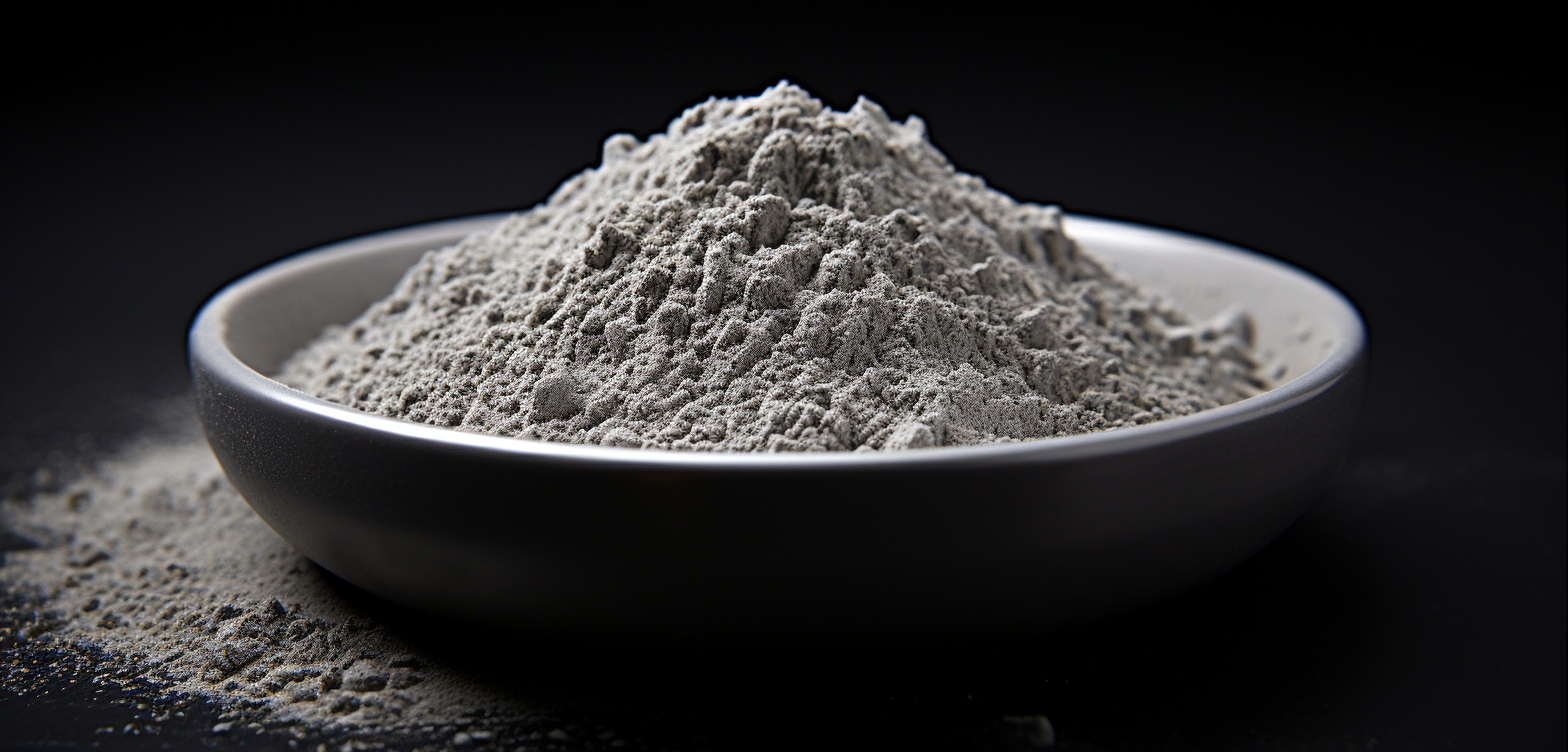

Tungsten is the hardest metal, with a melting point of 3,400 °C and a boiling point of 5,555 °C. Tungsten powder, the powdered form of metallic tungsten, is used as a raw material for producing tungsten processed materials, tungsten alloys, and tungsten products. SAM offers various types of tungsten powder, including pure tungsten powder, tungsten carbide powder, and tungsten alloy powders.

Powdered metallic tungsten powder serves as the raw material for the production of processed tungsten products, tungsten alloy, and tungsten material. Tungsten powder is industrially manufactured mainly through hydrogen reduction of tungsten trioxide or ammonium metatungstate. For special uses with ultrafine particle size and high purity, the development of the tungsten chloride hydrogen reduction process has resulted in tungsten powder with particle sizes below 0.05μm. SAM offers nano-tungsten with particle sizes ranging from 40–80nm and from 30nm to 1µm.
The properties of tungsten powder directly affect the production of tungsten materials and the quality of tungsten powder metallurgy products, and purity and particle size have particularly significant effects.
|
Specification |
Grade |
APS/BET/FSSS |
Oxygen (%,≯) |
|
Ultra-Fine Size |
ZE03 |
3.1-5.2m2/g |
0.60 |
|
ZE04 |
2.0-3.5m2/g |
0.55 |
|
|
ZE06 |
0.50-0.70μm |
0.40 |
|
|
ZE07 |
0.60-0.80μm |
0.35 |
|
|
ZE08 |
0.70-0.90μm |
0.25 |
|
|
Fine Size |
ZW10 |
0.90-1.10μm |
0.20 |
|
ZW12 |
1.10-1.30μm |
0.15 |
|
|
ZW15 |
1.30-1.70μm |
0.12 |
|
|
Medium Size |
ZW20 |
1.80-2.20μm |
0.08 |
|
ZW25 |
2.30-2.70μm |
0.08 |
|
|
ZW30 |
2.80-3.20μm |
0.06 |
|
|
ZW35 |
3.30-3.70μm |
0.06 |
|
|
ZW40 |
3.80-4.50μm |
0.04 |
|
|
ZW50 |
4.50-5.50μm |
0.04 |
|
|
ZW60 |
5.50-6.50μm |
0.04 |
|
|
ZW70 |
6.50-7.50μm |
0.04 |
|
|
Coarse Size |
ZW80 |
7.50-8.50μm |
0.04 |
|
ZW90 |
8.50-9.50μm |
0.04 |
|
|
ZW100 |
9.00-11.0μm |
0.04 |
|
|
ZW120 |
11.0-13.0μm |
0.03 |
|
|
Ultra-Coarse Size |
ZW150 |
13.0-17.0μm |
0.03 |
|
ZW200 |
16.0-25.0μm |
0.03 |
|
|
ZW300 |
25.0-35.0μm |
0.03 |
|
|
ZW400 |
35.0-45.0μm |
0.03 |
| Type | Purity | Shape | Particle Size |
| Spherical W Powder | ≥99.95% | Spherical | 50nm, 100nm, 1-10um, 5-25um, 15-45um |
| W Powder | ≥99.95% | Non-spherical | 0.5-45.0 μm or customized |
| Nano Tungsten Powder | >99.9% | Spherical | 40-80nm; 30nm-1um (customized) |
| Tungsten Rhenium Alloy Powder | 99.90% | Non-spherical | 15-53μm, 45-105μm, or customized |
| Tungsten Molybdenum Alloy Powder | ≥99.9% | Spherical | 5-25μm, 15-45μm, 15-53μm, 45-75μm, 45-105μm, 75-150μm |
| Nickel-coated Tungsten | ≥99.9% | Spherical | 5-25μm, 15-45μm, 15-53μm, 45-75μm, 45-105μm, 75-150μm |
| Copper-coated Tungsten | 99.90% | Spherical | 5-25μm, 15-45μm, 15-53μm, 45-75μm, 45-105μm, 75-150μm |
| Tungsten Carbide Powder | ≥99.8% | Spherical | 0-25,15-53,45-105,75-150μm |
| Tungsten Carbide Cobalt Chromium | 99.90% | Non-Spherical | 1-60μm, or customized |
| WC-Co6 Powder | 99.90% | Spherical | 0.85-0.005mm, or as request |
| WC-Co12 Powder | 99.90% | Spherical | 0.85-0.005mm, or as request |
| WC-5Co | 99.90% | Non-Spherical | 5-30, 15-45, 45-105 μm, or customized |
| WC-8Co | 99.90% | Non-Spherical | 5-30, 15-45, 45-105 μm, or customized |
| WC-10Co | 99.90% | Non-Spherical | 5-30, 15-45, 45-105 μm, or customized |
| WC-15Co | 99.90% | Non-Spherical | 5-30, 15-45, 45-105 μm, or customized |
Tungsten powder exhibits a variety of particle sizes and morphologies, commonly including spherical, needle-like, and irregular shapes. Different particle sizes and morphologies influence their flowability, compressibility, and sintering performance in various processes.
Tungsten powder is the primary feedstock for powder metallurgy tungsten products and tungsten alloys processing. Pure W powder can be processed into wire, rod, tube, sheet, and other processed materials and formed products. If combined with other metal powders, tungsten powder can be used to manufacture various tungsten alloys such as tungsten-molybdenum alloy, tungsten-rhenium alloy, tungsten-copper alloy, high-density tungsten alloy, etc. Another important application of tungsten powder is used to produce tungsten carbide powder, which further finds applications to produce hard alloy tools, such as lathe tools, milling cutters, drill bits, and molds.
Tungsten powder can be sintered into various porous filters.
It is utilized in the production of processed tungsten materials, alloys, and various products, including electronics, aerospace components, and industrial machinery.
Tungsten has a higher melting point (3422°C vs. 3017°C) and density (19.3 vs. 16.6 g/cm³) than that of tantalum. Tantalum is extremely resistant to corrosion, with resistance to acids, alkalis, and even aqua regia, and is thus extremely well-suited for chemical and medical applications. Tungsten, while extremely heat-resistant, oxidizes at elevated temperatures and finds its primary uses in ultra-high-temperature applications like rocket nozzles and armour-piercing shells.
The melting point of tungsten (3422°C versus 2623°C) is much greater, and it is denser (19.3 versus 10.2 g/cm³) than molybdenum. Molybdenum is easier to process and cheaper and employed extensively in high-temperature furnace and electronic system applications. Tungsten, with its excellent heat resistance and hardness, is employed where there are actually very high temperatures.
In high-temperature applications, tungsten powder is used to manufacture components that must withstand extreme heat, such as furnace parts, nozzles, and heat shields.
Yes, it can be easily oxidized at high temperatures or in oxygen-rich environments. Therefore, anti-oxidation measures should be taken when storing and using the material.
Read more:
Tungsten Powder: What Is It & How to Use
Tungsten Carbide Powder: The Key Material for Hard Alloys
Spherical Tungsten Rhenium Alloy Powder: WRe25 vs WRe26 vs WRe5

